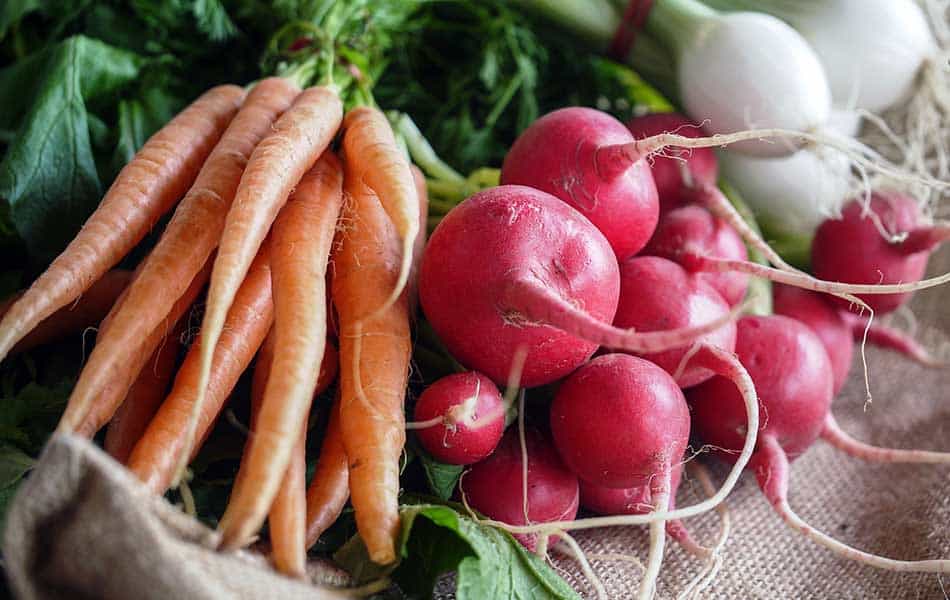
1 | I like to plan meals ahead, so I only buy what I will use in the coming days. Shopping without a plan can lead to over-buying of fresh ingredients which will ultimately go to waste.
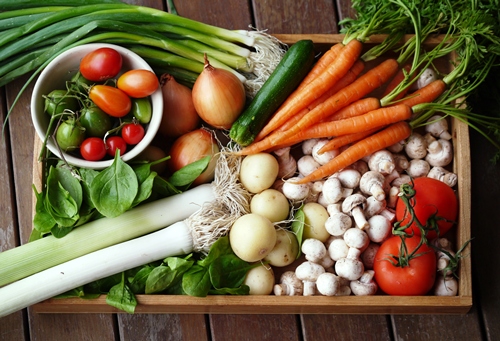
Shopping with a plan reduces wastage of beautiful fresh produce.
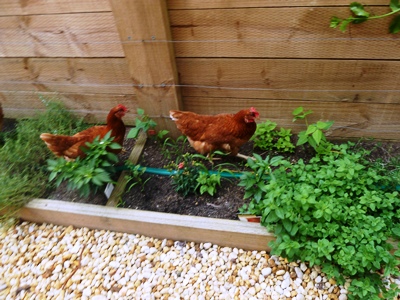
The chooks have run amok in the herb garden.
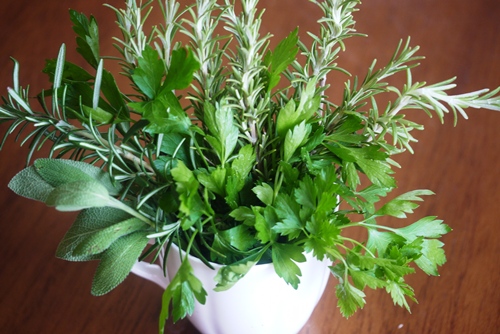
Fresh herbs from the garden.
3 | To reduce waste of fresh produce I have a few recipes up my sleeve for fruit or vegetables that are starting to turn and may not be appealing to eat as they are. Overripe tomatoes become chutney or pasta sauce, apples and bananas become cakes, stonefruits become jam.
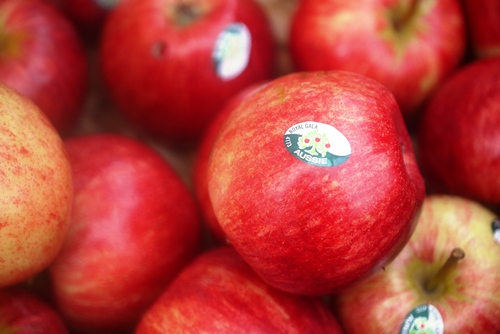
Bruised apples are still good to use!
4 | I like to buy and cook in bulk and freeze meals. This means I can take advantage of bulk buys, and I avoid wasting electricity, time and effort. Foods that freeze really well include Bolognese, casseroles/braises and curries. Food keeps for 3 months in the freezer so labelling it with the date is important so we use it before it’s too old.
5 | We compost our organic waste (whatever we don’t feed to the chooks, that is!) It saves room in the bin and provides great fertiliser for the garden.
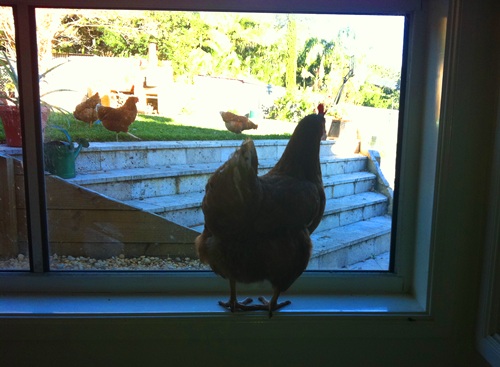
How did that happen???
6 | Once our bread is too stale to eat, I put it in the freezer. When I have enough crusts or bread, I process them into breadcrumbs, then I keep these in the freezer. They are good for sausage rolls and meatloaf, Christmas pudding, and of course schnitzels and crumbed fish – or try my Italian -inspired stuffed zucchini flowers.
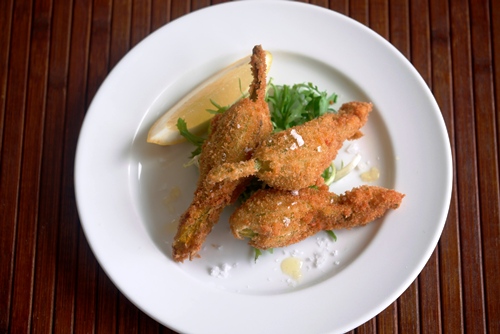
Stuffed zucchini flowers – crumbed using leftover stale bread.
7 | I look for products that have minimal or no processing or packaging. Generally, the more processed, packaged and handled food is, the more expensive it is. (Compare the cost of a cabbage and some carrots gram for gram with a bagged, pre-made coleslaw mix for example.) It saves money, and the environment, and is nicer to eat!
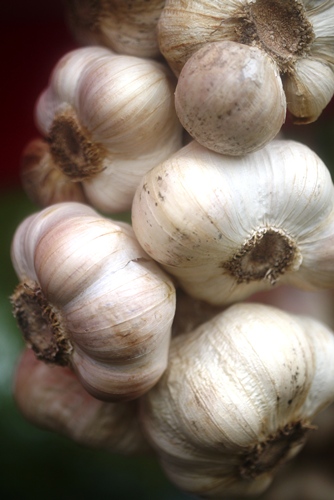
Unprocessed and unpackaged food tastes better and reduces waste.
8 | Food storage is hugely important in minimising waste. Fruit and vegetables can last much longer in the fridge if they are stored properly. Bananas shouldn’t be kept near other fruit as they speed ripening.
9 | I like to make use of leftovers but I find that if they are not stored properly they don’t last long and they don’t look appealing. So, I transfer them to a smaller, clean container before storing in the fridge.
10 | Leftover rice and pasta can be dry and unappealing when it’s reheated. I put a couple of spoonfuls of water into the container before reheating and they come up as good as new.
For loads of other tips on how to reduce waste, save money AND the planet go to www.1millionwomen.com.au.

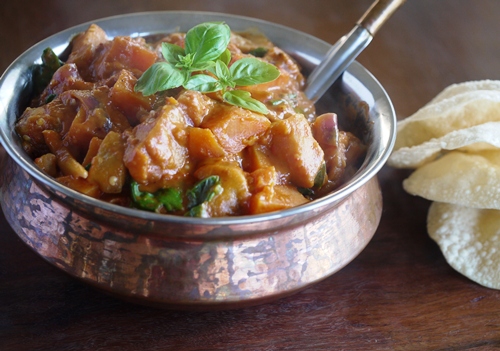
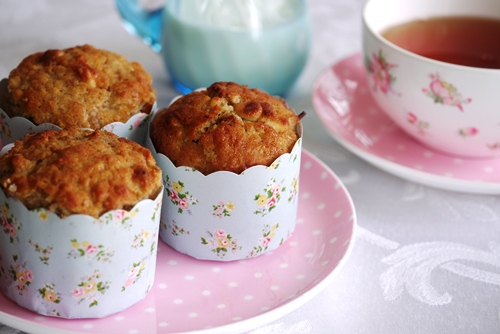
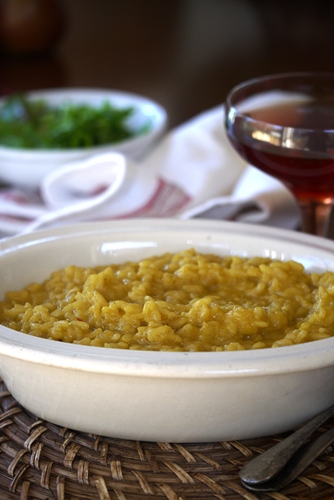

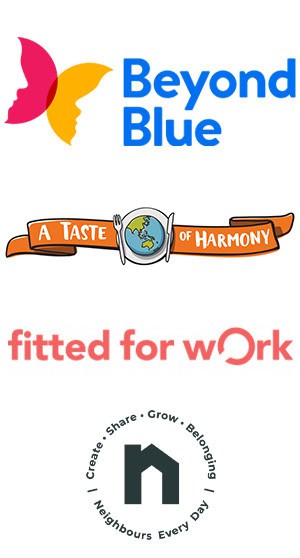

Food waste drives me nuts… I try to reduce it as much as possible, and am attempting to teach my kids to only take as much as they can eat!
Love your photo of the chook on the window sill.. chooks are awesome!
Chooks ARE awesome. They are so funny. This one just wandered in and made herself at home.
Thank you for sharing, Jules 🙂
🙂